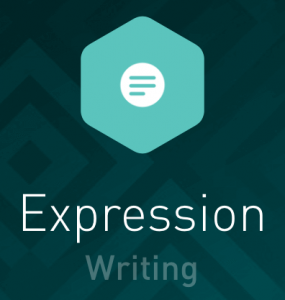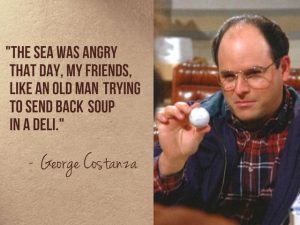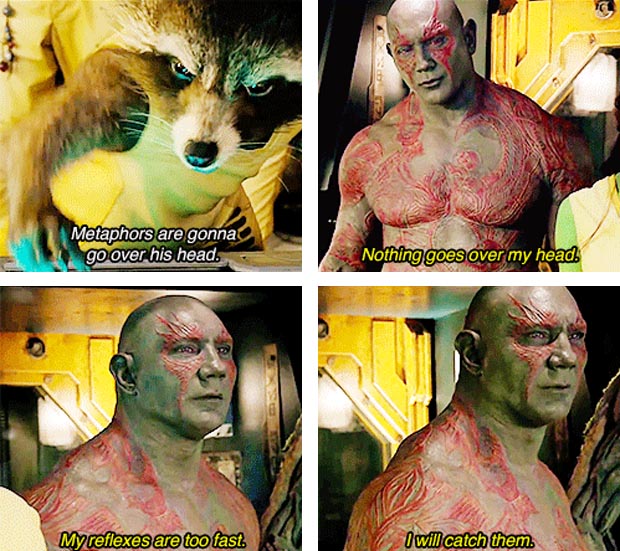by Naomi L. | November 18, 2016 | Flash Fiction, J.C. Wolfe's Writing |
To my loving family,
I know you’re all still in pain, and you’re sad because you miss me. The truth is I miss you all too, but the time has come to move on. I’m in a much better place now, and I promise I’m comfortable and happy. But since I got here, I’ve been told that humans have trouble accepting the loss of loved ones, so I hope this letter will put you at ease and give you peace.
Please understand that this was not your fault. I know you did everything you could to make me stay, but there was nothing you could have done for me anymore. I didn’t mean to hurt you by leaving; it was just my time to go. Don’t blame yourselves, because you did exactly what you should have done: you gave me a good life and made my last hours as comfortable as possible.
I want to thank you all for giving me the best life I could ever have asked for. I know I was too small when you found me to remember living on the street, but I’m grateful that you took me in and gave me a comfortable place in your home and in your family. I always had plenty of room to play, a warm lap to curl up in, soft beds to sleep in, and all the food I ever needed – even if you didn’t always get the flavor right or put as much in my bowl as I wanted, no matter how much I cried. Maybe I wasn’t good at making it clear (I hear humans express their affection differently), but you all meant the world to me, and I did care for you all very much.
I also want to thank you for the comfort you gave me in my last moments. Curled up in Mom’s arms was exactly where I wanted to be, and your goodbye kisses were the perfect way to send me off. I’m sorry you had to suffer by seeing me go, but I’m glad I could be with you all in the end.
So please don’t be sad, dear family. Remember the good times we had, and think about all the joy we shared in my ten years of life. I hope I’ve enriched your lives as much as you’ve enriched mine, and I’m sure you won’t forget me any time soon. I’ll certainly never forget you. This isn’t goodbye forever; we’ll see each other again soon. So be happy, and know that no matter where I am, you will always be my family, and I’ll love you forever. Until we meet again, a loving purr and great big meow to you all!
Love always,
Your Little One
P.S. The dog sends her love. She and I have put in a good word for you all with the Caretaker!
So our family cat passed away last month, a tragic day for us all. I wrote this letter in loving memory of her as my way of getting closure; though we all still miss her terribly, I like to imagine she’s in a better place now and still loves and remembers us wherever she is. We love you, Piccolina!
Oh, and the dog mentioned in the postscript is the same dog from “My Last Bark“, another “loving memory” story I wrote a few years ago. Yes, I really love my pets!
by Naomi L. | November 16, 2016 | Blog, Creative Writing |
Still working on that NaNoWriMo novel? Whether you’re trying to churn out a 50,000-word novel or just sticking to short stories for now, impeccable writing skills are key to success in the long run, and that includes proper grammar and spelling of everything from simple words to long phrases and idioms. There are plenty of everyday expressions that we’re used to hearing but not reading or writing, and this often leads to misspellings. It never hurts to keep notes of these misheard idioms for future reference, which is why I compiled another list of words and phrases from the Elevate – Brain Training app, this time from the Expression game.
So continuing on a trend of writing lessons from Elevate, here are 14 common expressions that you may be writing incorrectly. Enjoy!
 1) All of a sudden: an alternative expression for “suddenly”. Write “all of a sudden”, not “all of the sudden”.
1) All of a sudden: an alternative expression for “suddenly”. Write “all of a sudden”, not “all of the sudden”.
2) Compliments of the house: indicates that something is being given for free. Write “compliments of the house”, not “complements of the house”.
3) Couldn’t care less: expresses a complete lack of interest. Write “couldn’t care less”, not “could care less”.
4) Deep-seated: describes something firmly established at a profound level. Write “deep-seated”, not “deep-seeded”.
5) Due diligence: the reasonable steps taken to satisfy a legal requirement. Write “due diligence”, not “do diligence”.
6) En route: a French expression meaning “during the course of” or “on the way”. Write “en route”, not “on route”.
7) For all intents and purposes: indicates that a concept applies in all important respects. Write “for all intents and purposes”, not “for all intensive purposes”.
8) Free rein: indicates freedom of action or expression. Write “free rein”, not “free reign”.
9) Harebrained: describes an idea that is rash or ill-advised. Write “harebrained”, not “hairbrained”. (Thanks to Robert Kirkendall for this one!)
10) Lo and behold: presents a surprising situation with the suggestion that it could have been predicted. Write “lo and behold”, not “low and behold”.
11) No love lost: indicates a mutual dislike between parties. Write “no love lost”, not “no love loss”.
12) Rife with: denotes that someone or something is full of a given emotion or idea. Write “rife with”, not “ripe with”.
13) Sleight of hand: dexterity typically used in performing tricks. Write “sleight of hand”, not “slight of hand” nor “slide of hand”. (Thanks to M.C. Tuggle for this one!)
14) Through the wringer: indicates subjecting someone to a stressful experience. Write “through the wringer”, not “through the ringer”.
Have you ever gotten any of these expressions wrong? What other expressions would you add to this list?
by Naomi L. | November 14, 2016 | Blog, Word of the Week |
Word: prescient
Pronunciation: PRE-sh(ee)ənt
Part of Speech: adjective
Definition: having or showing knowledge of events before they take place
Source: Oxford Dictionaries
So it’s been almost a week since the next American president was elected, and honestly, I was… shocked, to say the least. Though a part of me is glad this election is finally over because I’m tired of hearing about politics, I couldn’t resist picking up one more vocabulary word from the articles flooding my news feed over the past several weeks. The irony is that it doesn’t really fit the theme of this election season, as relatively few national polls correctly predicted the outcome. The people who saw this result coming from a long way off must be a “prescient” bunch indeed!
To be “prescient” is to show or have knowledge of events before they happen. The word arose in the early 17th century and comes from the Latin verb praescire, meaning “to know in advance”. This verb comprises the preposition prae “before” and the verb scire “to know”.
While the word “prescient” may appear to be related to “clairvoyant“, it seems to apply more to knowledge and educated guessing than to supernatural psychic abilities. Those who prove themselves “prescient” tend to have a greater understanding of facts and make correct predictions based on past events. Also noteworthy is the noun form of this adjective, “prescience”, meaning “the fact of knowing something before it takes place”. If the people in your stories are good at predicting the outcomes of events, you’re certainly writing some “prescient” characters!
What are your thoughts on this word? Any suggestions for future “Word of the Week” featured words?
by Naomi L. | November 9, 2016 | Blog, Creative Writing, Featured |
Rhetoric: the beautiful art of persuasive speaking and writing that all ambitious people strive to master. It’s a powerful tool for success; within a social and communicative species like ours, so many goals can be achieved simply through the use of effective speech and composition. English is rife with handy rhetorical devices, and while you work on that NaNoWriMo novel, you should consider how to use language to its greatest potential, as much among your characters as with your audience.
So for your reference, here is a list of six popular rhetorical devices, complete with explanations and examples for how to use them. Enjoy!
1) Analogies are as easy as pie.

The sea was angry that day, my friends, like an old man trying to send back soup in a deli. – George Costanza, Seinfeld (Season 5, Episode 14 – The Marine Biologist)
(Image source: Playbuzz)
The analogy is one of the first rhetorical devices we learn to use in school. The basic formula is simple: take two similar ideas and connect them with “as” or “like” (which gives you a simile). They can also be more complex, making use of similes and metaphors to strengthen a comparison in the minds of readers and listeners, thus leaving a lasting impression on the audience.
Analogies are particularly useful for making complex ideas accessible by comparing unfamiliar concepts with familiar ones. Aside from providing simple explanations, they can also be used to create vivid images that engage the audience, such as “autumn leaves falling like golden rain” or “a young lady as beautiful and delicate as a rose”. Try not to use too many analogies at once, though; constantly comparing one image to another will not only get tiresome quickly, but could give the impression of unoriginality, especially if you’re comparing your work to someone else’s. Don’t make your stories as average as the next person’s!
2) Hyperbole is the greatest rhetorical device ever created!
 There’s nothing like exaggeration to get a point across. Who among us hasn’t shared our experiences of “the greatest thing ever”, “the worst day in history”, or “the most fun I’ve ever had in my entire life”? Hyperbole is a common device for creating emphasis, as exaggeration tends to have a great impact on an audience’s perceptions of a given description.
There’s nothing like exaggeration to get a point across. Who among us hasn’t shared our experiences of “the greatest thing ever”, “the worst day in history”, or “the most fun I’ve ever had in my entire life”? Hyperbole is a common device for creating emphasis, as exaggeration tends to have a great impact on an audience’s perceptions of a given description.
If you think about it, it’s funny how we’re inclined to exaggerate so often. After all, nobody literally “dies of embarrassment”, bags don’t literally “weigh a ton”, and friends don’t literally “go forever without seeing each other”. Yet we excuse this lack of literal sense in favor of the bolder imagery that fascinates us so, as if reaching to the limits of our imagination and beyond is simply second nature.
While it shouldn’t be used in excess, hyperbole is a good addition to any conversation that calls for dramatic emphasis. Have your characters use this device to add an informal or amusing tone to your dialogue, while in narrative you can use it to demonstrate intensity or create contrasts with normal descriptions. Use it wisely, and the hyperbole may just help you write the best stories ever!
3) Metaphors are a piece of cake.
All the world’s a stage,
And all the men and women merely players.
– William Shakespeare, As You Like It
Ah, metaphors: the celebrated heroes of poetic language. This is an especially popular device in rhetoric, using figurative speech to make strong comparisons where literal expressions would fall short. A close cousin of the simile and building block of the full analogy, the metaphor is an effective tool for constructing imagery that appeals to the audience’s imagination and draws them further into a story. Why say a soldier is “brave” when you can call him a “lion”, or say that a sound is “sweet” when you can call it “music to one’s ears”?
Metaphors have become so pervasive in modern language that we don’t even realize how heavily we rely on them in everyday speech. We suffer “broken hearts”, laugh “our heads off”, cry “rivers of tears”, and “bottle up” our anger. We’re “early birds” and “night owls”, “open books” and “loose cannons”, “black sheep” and “couch potatoes”, all lost in a “sea of faces” in the great “melting pot” that is our world. Is it even possible to speak completely literally anymore? I can only imagine how hard (and fun) it must have been to write Drax’s lines for Guardians of the Galaxy!
The metaphor is useful for creating impact in a story, so long as it’s used sparingly and with good timing. If you find your writing is lacking some flair, a well-placed metaphor, whether short and sweet or long and complex, may be just the thing to “brighten up” your story and “paint a colorful picture” in your readers’ minds!
4) Oxymorons are stupidly brilliant!
And faith unfaithful kept him falsely true.
– Idylls of the King (Alfred Tennyson, 1859–1885)

Good night, good night! Parting is such sweet sorrow / That I shall say good night till it be morrow. – Juliet Capulet (Romeo & Juliet, 2.2.185–86)
(Screencap source: Romeo + Juliet, 1996)
This is one of my favorite rhetorical devices, for even though I don’t use it often myself, I enjoy the comical irony of using opposites to create a coherent phrase. The oxymoron is a figure of speech formed by combining contradictory terms, which often leads to humorous results: “jumbo shrimp”, “found missing”, “act naturally”, and so on. Some are even taken for granted as commonplace expressions, such as “virtual reality” and “science fiction”. And what horror fan could forget the classic “living dead”?
The beauty of the oxymoron is that it can just as easily slip by unnoticed as it can make us pause to think when pointed out. In rhetoric, this device can be used to create a paradox and draw attention to a contradiction, such as in Romeo’s criticism of the contrasts of love in Shakespeare’s Romeo & Juliet:
O heavy lightness, serious vanity,
Misshapen chaos of well-seeming forms!
Feather of lead, bright smoke, cold fire, sick health,
Still-waking sleep, that is not what it is!
– Romeo Montague (Romeo & Juliet, 1.1.184–87)
Overall, oxymorons are good for creating dramatic effect in poetry and in prose. They’re also popular as satirical devices, and can make great additions to a piece of humorous writing. So the next time you feel stuck writing comedy, why not try making opposites attract? You may be able to create some “seriously funny” works!
5) I’m not saying paralipsis is an evasive maneuver, but…
 This one was recently featured as a Word of the Week on my blog. It’s common to hear people use such phrases as “I’m not saying”, “not to mention”, and “needless to say”, only to immediately follow them up with a piece of information they just said they wouldn’t talk about. This is known as paralipsis, an ironic way to draw attention to a subject by explicitly stating you won’t mention it.
This one was recently featured as a Word of the Week on my blog. It’s common to hear people use such phrases as “I’m not saying”, “not to mention”, and “needless to say”, only to immediately follow them up with a piece of information they just said they wouldn’t talk about. This is known as paralipsis, an ironic way to draw attention to a subject by explicitly stating you won’t mention it.
A relatively colloquial device, paralipsis is used most effectively in speech rather than in writing, making it a good choice for character dialogue. One of the most notable examples in literature (as pointed out by Mike of M.C. Tuggle, Writer) is Mark Antony’s speech in Shakespeare’s Julius Caesar, in which Antony brilliantly uses this device to turn the crowd against Brutus and the other conspirators:
Have patience, gentle friends, I must not read it;
It is not meet you know how Caesar loved you.
You are not wood, you are not stones, but men;
And, being men, bearing the will of Caesar,
It will inflame you, it will make you mad.
‘Tis good you know not that you are his heirs;
For if you should, O, what would come of it!
– Mark Antony (Julius Caesar, 3.2.139–45)
In rhetoric, paralipsis has several uses: to indirectly point something out, to make a passive-aggressive comment, to criticize someone without being held accountable, or to explain something while politely avoiding a suggestion of ignorance (or, alternatively, to make a sarcastic comment about the audience’s ignorance). Though it should be used carefully, this is a highly effective device that can make for some exceptionally persuasive speech. I’m not saying it’ll help you reach or even surpass the level of your favorite authors, but learning to use paralipsis well will definitely improve your proficiency as a writer!
6) I love when people take sarcasm seriously.
Irony in its sharpest form, sarcasm is hailed as one of the most beloved tools in the comedic arsenal – so much so, that it’s become nearly impossible not to hear it in some form or other in everyday speech. Sarcasm is basically the use of wit to make a point, typically in a bitter way that conveys contempt. This device comes in many flavors, including deadpan, self-deprecating, manic, and even polite. It’s used to amusingly draw attention to the obvious, to mock oneself or others, or simply as a coping mechanism to make the frustrations of life a little more bearable. I know I’ve had those days that I couldn’t survive without a little sarcasm to tide me over!

Leonard has to clue Sheldon in on Penny’s sarcasm (The Big Bang Theory: Season 1, Episode 2 – The Big Bran Hypothesis)
(Image source: Tumblr)
Given its acidic nature, sarcasm is best exercised with caution. Like most humor techniques, it’s hard to teach because each person uses it differently and even harder to master because not everyone understands it, but sarcasm in particular is worth the effort as it’s a strong indicator of the writer and the readers’ intelligence. Use it in dialogue to demonstrate a character’s sharp wit or occasionally in narrative to indirectly criticize people and society, and if you must use it to address your readers, at least try not to be too offensive and alienate an audience who have no sense of humor. Or, you know, just do whatever you want. Why give a damn what the rest of the world thinks?
What are your thoughts on these rhetorical devices? Any other favorites you would add to this list?

 1) All of a sudden: an alternative expression for “suddenly”. Write “all of a sudden”, not “all of the sudden”.
1) All of a sudden: an alternative expression for “suddenly”. Write “all of a sudden”, not “all of the sudden”.
 There’s nothing like exaggeration to get a point across. Who among us hasn’t shared our experiences of “the greatest thing ever”, “the worst day in history”, or “the most fun I’ve ever had in my entire life”? Hyperbole is a common device for creating emphasis, as exaggeration tends to have a great impact on an audience’s perceptions of a given description.
There’s nothing like exaggeration to get a point across. Who among us hasn’t shared our experiences of “the greatest thing ever”, “the worst day in history”, or “the most fun I’ve ever had in my entire life”? Hyperbole is a common device for creating emphasis, as exaggeration tends to have a great impact on an audience’s perceptions of a given description.

 This one was
This one was 

Recent Comments